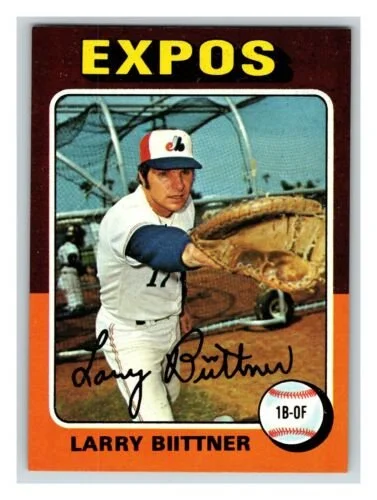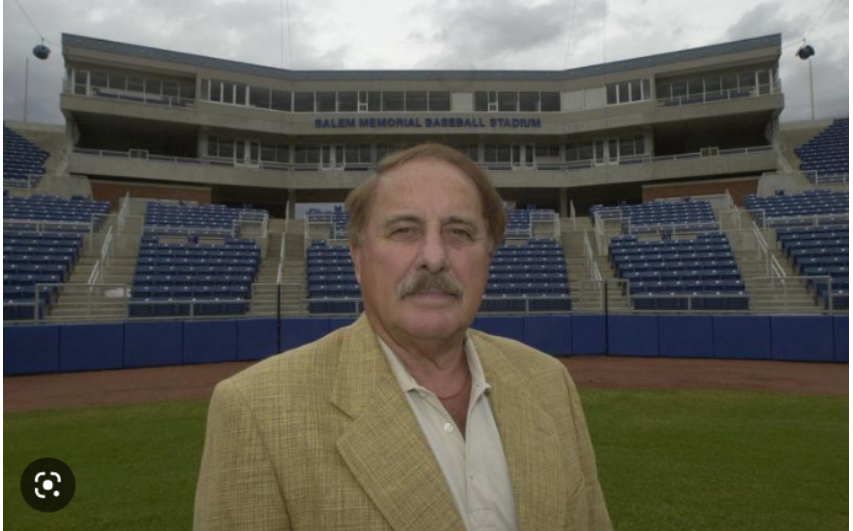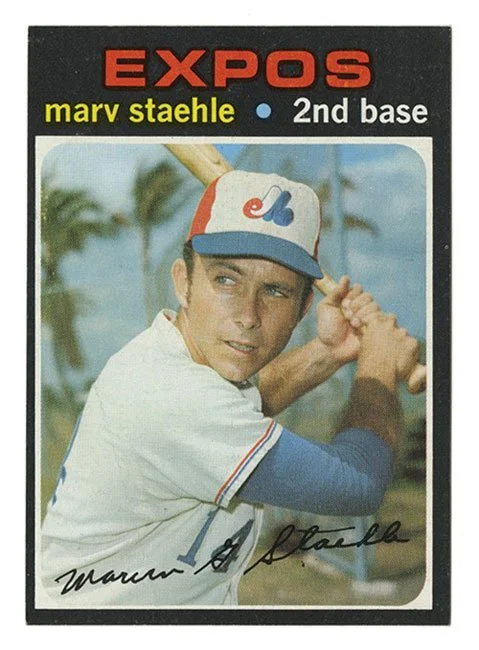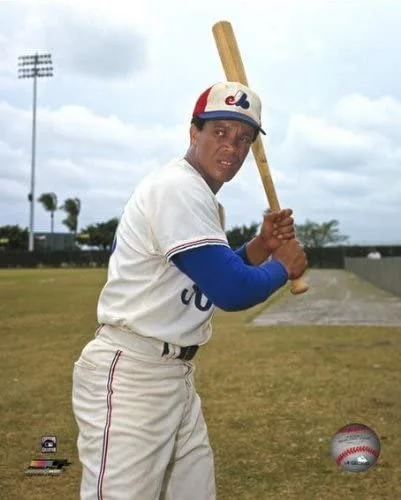Glew: Remembering the former Montreal Expos who died in 2022
December 28, 2022
By Kevin Glew
Canadian Baseball Network
As the end of the year approaches, I wanted to pay tribute to the former Montreal Expos that we lost in 2022.
He passed away on January 2 in his hometown of Pochahontas, Iowa at the age of 75 after a courageous battle with cancer. Biittner earned a combined basketball and baseball scholarship to Buena Vista College in Storm Lake, Iowa. As a teen, Biittner was a dominant left-handed pitcher who also excelled at the plate. His skills inspired the Washington Senators to select him in the 10th round of the 1968 MLB draft. But the Senators liked his bat more than his arm and converted him into an outfielder/first baseman. He played just 68 games in Washington before the franchise shifted to Texas in 1972. Biittner batted .252 in 83 games with the Rangers in 1973 before being dealt to the Expos. After spending the bulk of 1974 in the minors, Biittner batted .315, while recording a .376 on-base percentage and five triples in 121 games for the Expos in 1975. Unfortunately, he found himself on the bench early in the 1976 season, as new Expos manager Karl Kuehl was focused on playing young prospects Ellis Valentine, Bombo Rivera and Gary Carter in the outfield. On May 17, Biittner was dealt, along with right-hander Steve Renko, to the Cubs for slugger Andre Thornton. He proceeded to play in 100 or more games in each of the next three seasons with the Cubs, but he found himself being used more often as a pinch-hitter. Following the 1980 campaign, he became the first free agent ever signed by the Cincinnati Reds who used him primarily as a pinch-hitter before he spent his final season with the Rangers in a similar role in 1983. In total, in 1,217 major league games over parts of 14 seasons, Biittner hit .273 and had 861 hits.
Former Montreal Expos scout Kelvin Bowles. Photo: The Roanoke Times
Kelvin Bowles
He passed away on February 20 at the age of 82 at his home in Smith Mountain Lake, Va., after a long battle with multiple myeloma. He was a versatile and respected scout for the Expos from 1985 to 1990. He was entrusted to scout collegians, international prospects, minor leaguers and major leaguers. Left-hander Chris Nabholz, an Expos’ second-round pick in 1988, was one of the players Bowles scouted and signed. Born in the Snow Creek area of Franklin County, Va., Bowles joined the U.S. Air Force after high school and eventually established a successful cable company in his home state. The profitability of his business permitted him to pursue a side-career as a scout. He started as a scout with the Major League Baseball Scouting Bureau before moving on to the Pittsburgh Pirates and the Expos. From approximately 1975 to 1990, he ran clinics and tryout camps in Virginia and surrounding states. He also later owned the Pirates’ class-A Salem Buccaneers and scouted for the Florida Marlins and Boston Red Sox.
He passed away on September 28, 2021 in Fort Worth, Texas at the age of 61 after a courageous battle with cancer. His obituary was not published until 2022. Born in San Antonio, Tex., Davis was a force on the mound for Texas A&M University, posting a combined 11-5 record during his college career, which convinced the Blue Jays to select him in the 21st round of the 1982 MLB draft. The 6-foot-1 lefty was assigned to their Rookie-ball affiliate in Medicine Hat where he registered a 5-1 record and a 3.44 ERA in 13 appearances to help the club to their only Pioneer League championship. Over the next two seasons, Davis climbed up the minor league ranks and would enjoy a breakout season in 1985. That year, Davis dominated in double-A Knoxville, going 17-6 with a 2.45 ERA in 27 appearances. This earned him a promotion to triple-A Syracuse, where he went 3-2 with a 2.50 ERA in six starts. Those combined 20 wins made him the first 20-game winner in the history of the Blue Jays’ organization. They also inspired the Blue Jays to call him up on August 24. After tossing two scoreless innings in relief against the Chicago White Sox in his major league debut on August 25, Davis was summoned from the bullpen again two days later when starter Tom Filer suffered an elbow injury in the first inning of a game against the Minnesota Twins at the Metrodome. Davis entered the game and threw four scoreless innings to pick up his first major league win in the Blue Jays’ 8-0 victory. Davis would make five starts for the Blue Jays in September that season and finish with a 3.54 ERA in 10 total appearances. The then 25-year-old lefty started the 1986 season in the Blue Jays’ bullpen but was roughed up for seven runs in his first three outings and was demoted to triple-A for the remainder of the season. Despite solid minor league numbers, he wouldn’t return to the big leagues with the Blue Jays. On December 26, 1988, he was signed as a free agent by Cleveland, where he resurfaced in the major leagues to make 12 appearances in 1989. He spent his final professional season with the triple-A Albuquerque Dukes in the Los Angeles Dodgers’ organization in 1990.
He passed away on September 30 in Lake Geneva, Wis., at the age of 80 after battling Parkinson’s disease. Born in Oak Park, Ill., Staehle signed with his hometown Chicago White Sox out of high school. He had been an outfielder, but the White Sox converted him into a shortstop. His steady, disciplined approach at the plate was his strength. Few appreciated on-base percentage in the early 1960s, but if they had, Staehle would’ve climbed the minor league ladder quicker. His on-base percentages were .351, .404 and .402 in his first three seasons in the Sox system. In 1963, he was promoted to double-A Nashville, where he hit .337 and won the South Atlantic League batting title. His performance earned him a call-up to the triple-A Toronto Maple Leafs, where he went 4-for-10 in five games. He was moved to second base in 1964 and recorded 176 hits and 79 walks in 157 games to earn his first big league call-up that September. Staehle would spend the bulk of the next three seasons in triple-A before receiving a late-season call up. In parts of four campaigns with the White Sox between 1964 and 1967, Staehle hit .160 in 53 games. Following that season, he enjoyed stints in the Cleveland and Seattle Pilots organizations before being dealt to the Expos on September 13, 1969, with whom he’d go 7-for-17 (.412 batting average) in six games down the stretch. Despite making a strong impression that September, Staehle was an underdog to crack the Expos’ roster in 1970. Gary Sutherland was pegged to be the regular second baseman, but Staehle proceeded to bat .485 that spring and endeared himself to the coaching staff with his scrappy play and he made the Opening Day roster. Staehle batted .218 and registered 39 walks, while striking only 21 times, in 104 games for the Expos in 1970, but it wasn’t enough to secure his future with the club. On December 30, 1970, the Expos acquired second baseman Ron Hunt from the San Francisco Giants, which made Staehle the odd man out heading into spring training in 1971. As camp progressed, it became evident Staehle was not going to make the team and by late March, the Expos were actively attempting to trade him. He was eventually released and signed by the Atlanta Braves. He played his final 22 major league games for the Braves in 1971.
Maury Wills.
Maury Wills
He passed away on September 19 in Sedona, Ariz., at the age of 89. No cause of death has been released. Born in Washington, D.C., Wills was signed by the Brooklyn Dodgers in 1950. He toiled for eight seasons in the club’s minors before finally getting his first big league shot in 1959. From there, the switch-hitting infielder established himself as a catalyst atop the Dodgers’ lineup and would lead the National League in stolen bases for six consecutive seasons from 1960 to 1965. In 1962, he set a then National League record with 104 stolen bases. That coupled with his .299 batting average and 208 hits helped him win the MVP award. After four more seasons with the Dodgers, Wills was traded to the Pittsburgh Pirates on December 1, 1966. With the Bucs, he enjoyed two decent seasons, but his declining skills and unpredictable behavior convinced the Pirates to leave him exposed in the 1969 National League expansion draft, where he was selected by the Expos. It wasn’t until March 9, 1969, after spring training games were already being played, that the Expos were able to sign Wills to a $105,000, one-year deal. According to Canadian Magazine, that contract made Wills the highest salaried athlete in Canada at the time. It also marked the beginning of an eventful three-month tenure with the Expos where he struggled on the field (He batted just .222 in 47 games) and was booed by Expos fans for indifferent play which inspired him to retire then un-retire 48 hours later. To his relief, on July 11, the Expos dealt him to the Dodgers, along with Manny Mota for Ron Fairly and Paul Popovich. Back with his former club, Wills returned to All-Star form, batting .297 with 25 stolen bases in 104 games down the stretch for them. He’d play three more seasons with the Dodgers before retiring for good. In total, Wills suited up for 14 major league seasons and was named to five All-Star teams and earned three World Series rings. Following his playing career, he tried his hand at broadcasting and then managed the Seattle Mariners for parts of two seasons in 1980 and 1981.





